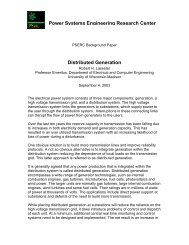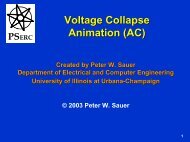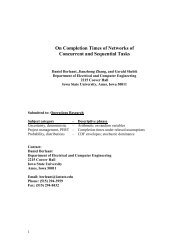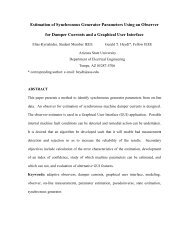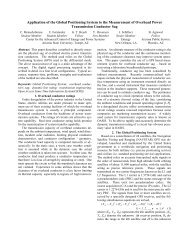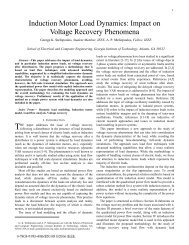Thrive: The Skills Imperative - Power Systems Engineering ...
Thrive: The Skills Imperative - Power Systems Engineering ...
Thrive: The Skills Imperative - Power Systems Engineering ...
You also want an ePaper? Increase the reach of your titles
YUMPU automatically turns print PDFs into web optimized ePapers that Google loves.
12<br />
Council on Competitiveness <strong>The</strong> <strong>Skills</strong> <strong>Imperative</strong><br />
<strong>Skills</strong> Strategies for<br />
the Future<br />
America must be more strategic about charting the path of future opportunities for workers,<br />
prioritizing around skills that do not offshore easily and are hard-to-replicate, that enable a faster<br />
pace of innovation, and that are emerging with new technologies and industries. Key areas of<br />
opportunity for the future prosperity of America’s workers include:<br />
• Untapped Opportunities<br />
• Service Economy <strong>Skills</strong><br />
• <strong>The</strong> Innovation Advantage<br />
• <strong>Skills</strong> for Sustainability<br />
Untapped Opportunities<br />
<strong>The</strong> U.S. Bureau of Labor Statistics estimates that between 40 percent and 45 percent of all job openings<br />
in the economy through 2014 will be in middle-skilled occupations, compared to one-third in high-skilled<br />
occupations and 22 percent in low-skilled service occupations. 11 As professor Harry Holzer of the Georgetown<br />
University Public Policy Institute observes, many of these jobs do not offshore easily and pay relatively<br />
well. And a number of these occupations face critical shortfalls in skilled workers. 12<br />
Two trends affect this job category significantly. Retiring baby boomers will create large vacancies in the<br />
low- to middle-skilled jobs. And immigrants are likely to fill the bottom- and top-skilled jobs more easily than<br />
those in the middle. Together, these trends will leave growing shortages of workers for middle-skilled jobs—<br />
those that require postsecondary education and training, but not necessarily a bachelor’s degree. 13





